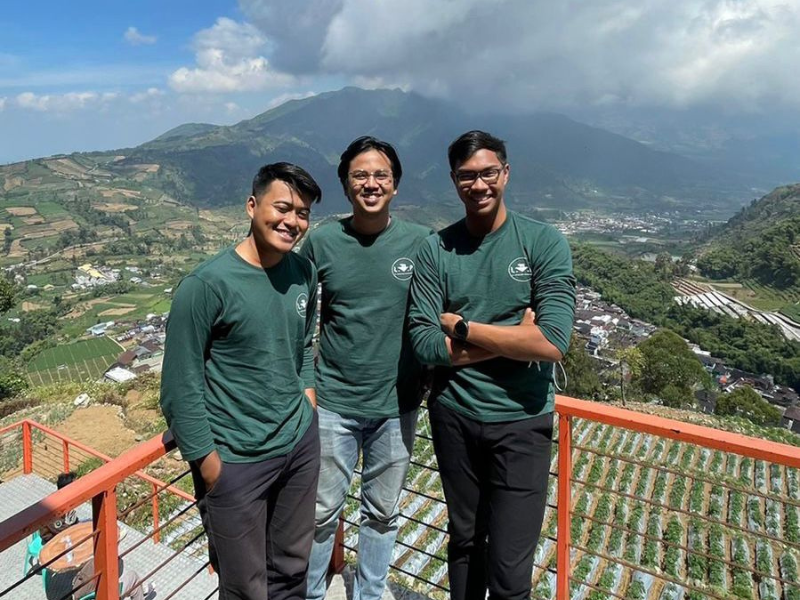At age 26, Maulana Rafi Damar is the co-founder and chairman of Lintas Agri Punakawan, a Java-based agriculture and investment firm focusing on sustainable farming. The young leadership team comprises three other individuals, aged 26 and 27, who started the business with Rafi in 2019.
Rafi is no ordinary farmer, for he has a lofty goal for his farm to elevate agriculture in his native Indonesia. Rafi recognised that by 2063, Indonesia could lose most of its farmers within a generation, as the older farmers retire and fewer young farmers to take their place. Hence, business continuity is at risk in the agriculture sector.
“This is attributed to the increasing number of youths preferring to work in cities rather than seeking opportunities in rural areas”, added Rafi.
“To be honest, the opportunities in the rural areas are enormous. We can tap on them as long as we can find our own way of doing business,” said Rafi.
Untapped opportunities
Rafi observed that Indonesia’s agriculture industry focuses mainly on quantity over quality. “We are attempting to secure a higher-quality agricultural product, even though the market is niche. We see a big opportunity in this market gap,” he said.
“When you go to the supermarkets in Singapore, most of the agricultural products are mostly imported from Thailand and Malaysia. So, the question is why not Indonesia? ” said Rafi. “For instance, take watermelon, how can we make it bigger and sweeter than the usual ones found in Indonesia’s farms.”
To ensure a quality yield, Rafi’s team then employs various techniques, including organic fertilisers, in which microorganisms break down the organic matter in the soil into nutrients for the crops, and hydroponics where plants absorb nutrients directly from water. The team also use greenhouses that create a microclimate with sunlight and temperatures to promote plant growth.
At the same time, Lintas Agri Punakawan forms partnerships with neighbouring farmers, training them in using hydroponics and greenhouses and encouraging them to abandon traditional slash-and-burn practices that lead to air pollution and deforestation. In return, the firm buys produce from these farmers. These collective agriculture practices thus promote less carbon intensive farming. But, it is a long journey towards sustainable agriculture on a wide scale in Indonesia. Still, Rafi is heartened by the incremental changes that his company is able to make to farming.
Running the farm is not an easy feat, nevertheless. There is a lot of trial and error involved. For instance, to get the watermelon to produce the desired level of sweetness, the team had to trial three different amounts of fertilisers for their watermelon crop over ten months. It took the team about 500 watermelons to get the sweetness level they liked.
Also, the venture had a tough start when farmers, unfamiliar with the firm’s approach, questioned their sustainable practices. “We do it in our space first, and the best way is to show them how it’s done,” said Rafi. Today, they have earned the trust of their fellow farmers.
In 2019, the team started with 700 square metres and one farm partner. Today, the farm has expanded to 1,700 square metres and has seven farm partnerships. Rafi added that the number of partnerships could increase to 15 by the end of the year. The farm also recently set up an e-commerce platform to sell more than 250 types of produce including bitter gourd, cabbages, carrots and sweet corns.




